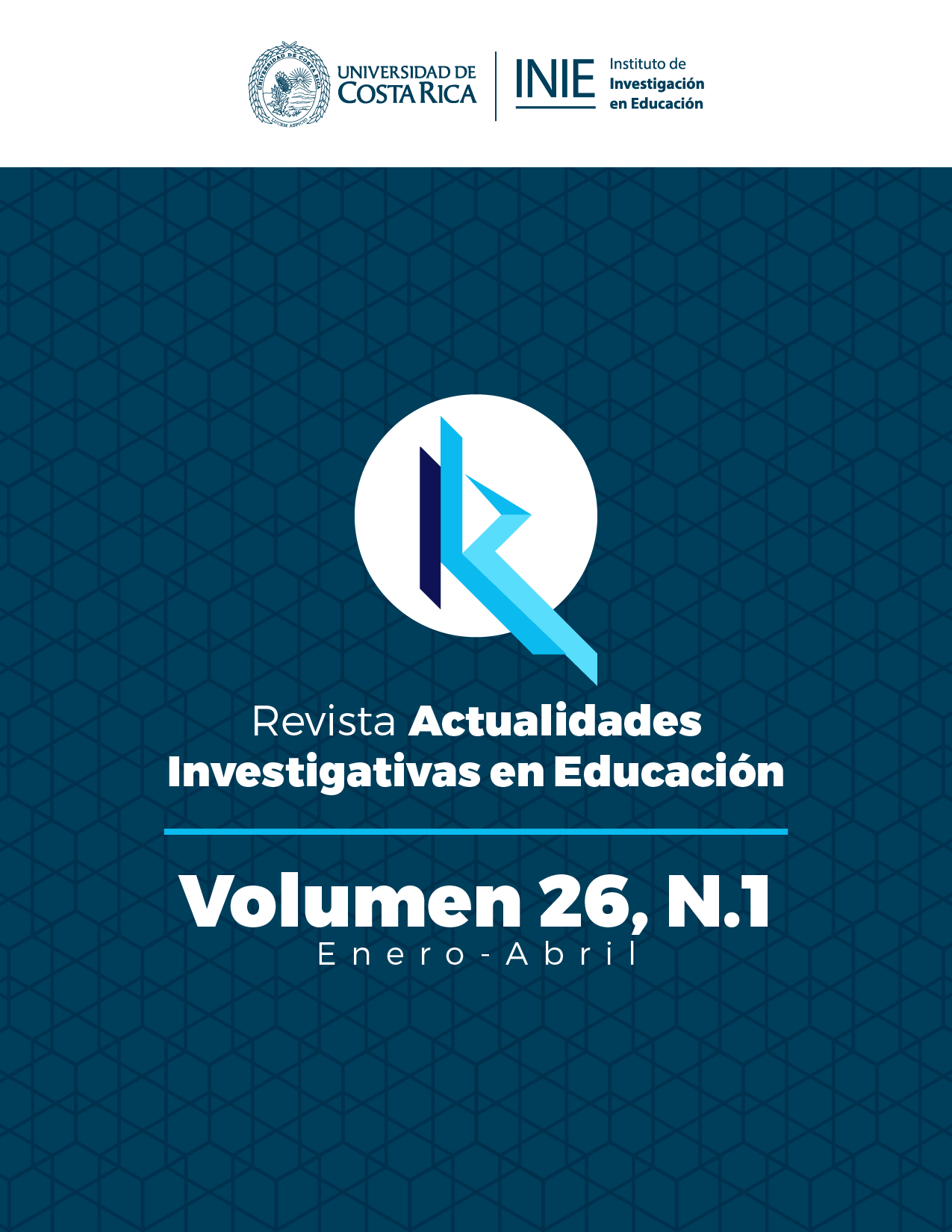The Geography of Language Learning: How Region and School Type Shape English Proficiency in Costa Rica
DOI:
https://doi.org/10.15517/pj482p23Keywords:
bilingual education, language testing, english proficiency, inequality in educationAbstract
This study investigates how high school type (public vs. private) and geographic region (Greater Metropolitan Area [GMA] vs. Non-GMA) intersect to influence English language proficiency outcomes among Costa Rican students. Drawing on national data from 66 886 high school students collected by the Foreign Language Assessment Program (PELEx, for its acronym in Spanish) in 2022, the study aimed to assess whether regional context moderates the relationship between school type and proficiency scores, with a focus on the effectiveness of public bilingual programs. Two moderation models were estimated using multiple regression with robust standard errors. The first model compared typical public and private schools (excluding bilingual types), while the second examined outcomes among public bilingual programs (Experimental Bilingual Schools and Bilingual Groups) relative to private schools. Results showed that public school students in Non-GMA areas were the most disadvantaged, scoring significantly lower than peers in private GMA schools (A2 vs. B2 levels). In contrast, public bilingual programs in GMA regions performed nearly on par with private schools, but their effectiveness declined in Non-GMA areas, where most students reached only B1. These findings demonstrate how regional inequalities compound school-based disparities and highlight the importance of context-sensitive evaluation when interpreting the promise and limitations of bilingual education systems.
Downloads
References
Adhikari, Bal Ram. (2019). Applied Linguistics in Nepalese Academia: Historical Development, Contemporary Trends and Perspectives. Education and Development, 29, 45–58. https://doi.org/10.3126/ed.v29i0.32566
Alfaro, Josué. (2023, October 17). Estos son los colegios privados más grandes de Costa Rica en 2023. El Financiero. https://www.elfinancierocr.com/economia-y-politica/estos-son-los-227-colegios-privados-del-pais/GQ2D3I4PHRACFLSC46ABELF73Q/story/
Alogiliy, Monther Ahmed. (2024). The Impact of Self-Efficacy on Academic Achievement Mediated by Learning Motivation and Moderated by Socioeconomic Status Among Jordanian EFL Students. Theory & Practice in Language Studies (TPLS), 14(12). https://doi.org/10.17507/tpls.1412.22
Araya, Walter. (2021). Dominio lingüístico en inglés en estudiantes de secundaria para el año 2019 en Costa Rica. Revista de Lenguas Modernas, (34), 1–21. https://doi.org/10.15517/rlm.v0i34.43364
Araya Garita, Walter., Elizondo González, José., and González Ramírez, Ana. (2022). Getting stakeholders acquainted with the rationale behind the construct of the English language proficiency test of the University of Costa Rica for the Ministry of Education of Costa Rica. Estudios de Lingüística Aplicada, 40(75), 119-143. https://doi.org/10.22201/enallt.01852647p.2022.75.1013
Auwarter, Eimy., and Aruguete, Mara. (2008). Effects of Student Gender and Socioeconomic Status on Teacher Perceptions. The Journal of Educational Research, 101(4), 242–246. https://doi.org/10.3200/JOER.101.4.243-246
Centro Ceibal. (n.d.). Ceibal en Inglés. https://ceibal.edu.uy/plataformas-y-programas/ceibal-en-ingles/
Cronquist, Kathryn., and Fizbein, Ariel. (2017). English Language Learning in Latin America. The Dialogue. https://repositorio.minedu.gob.pe/bitstream/handle/20.500.12799/5911/English%20Language%20Learning%20in%20Latin%20America.pdf?sequence=1&isAllowed=y
Curtis, Andy. (2021). What do we mean by under-resourced context? In K. M. Bailey & D. Christian (Eds.), Research on teaching and learning English in under-resourced contexts (pp. 14–28). Routledge. https://doi.org/10.4324/9781003057284-2
Díaz Rojas, Katherine. (2019, October). Colegios académicos con secciones bilingües Español-Inglés se unen. https://www.mep.go.cr/noticias/colegios-academicos-secciones-bilinguees-espanol-%E2%80%93-ingles-se-unen
Díaz Rojas, Katherine. (2021, September). Nuevos programas de inglés se implementan en las clases este 2021. https://www.mep.go.cr/noticias/nuevos-programas-ingles-se-implementan-clases-este-2021
Dong, Li. (2024). Examining the relationship between socioeconomic status, self-regulated learning strategies, and writing proficiency in English as a second language learning context. Journal of Educational Psychology, 116(5), 686–702. https://doi.org/10.1037/edu0000834
Education First. (2019). EF English Proficiency Index. https://www.ef.edu/epi/
Escalante, Cristina., and Masis, Miriam. (2021). Investigación evaluativa del proceso de gestión de los Liceos Experimentales Bilingües y los resultados obtenidos a partir de ellos en la formación integral de los estudiantes. Ministerio de Educación Pública. https://www.mep.go.cr/sites/default/files/2023-10/bilingues-deie-2021.pdf
Flores, Nelson., and Rosa, Jonathan. (2015). Undoing appropriateness: Raciolinguistic ideologies and language diversity in education. Harvard Educational Review, 85(2), 149-171. https://doi.org/10.17763/0017-8055.85.2.149
García, Ofelia., and Wei, Li. (2014). Translanguaging: Language, Bilingualism and Education. Palgrave Macmillan.
Gobierno de Chile. (2014). Estrategia Nacional de Inglés 2014–2030. Ministerio Secretaría General de la Presidencia; Ministerio de Educación; Ministerio de Economía, Fomento y Turismo. https://www.economia.gob.cl/wp-content/uploads/2014/03/140307-Documento-Estrategia-Nacional-de-Inglés-2014-2030.pdf
Hair, Joseph., Black, William., Babin, Barry., and Anderson, Rolph. (2010). Multivariate Data Analysis (7th ed.). Pearson Education.
Hayes, Andrew. (2017). Introduction to mediation, moderation, and conditional process analysis: A regression-based approach. Guilford publications.
Hernández-Fernández, Jimena., and Rojas, Javier. (Eds.). (2018). English public policies in Latin America: Looking for innovation and systemic improvement in quality English language teaching. British Council México. https://www.researchgate.net/publication/344775964_English_Public_Policies_in_Latin_America_Looking_for_Innovation_and_Systemic_Improvement_in_Quality_English_Language_Teaching
Hornberger, Nancy., and Link, Holly. (2012). Translanguaging in today's classrooms: A biliteracy lens. Theory Into Practice, 51(4), 239-247. https://doi.org/10.1080/00405841.2012.726051
Huang, Yu Ning., and Hong, Zuway. (2016). The effects of a flipped English classroom intervention on students’ information and communication technology and English reading comprehension. Educational Technology Research and Development, 64(2), 175–193. https://eric.ed.gov/?id=EJ1094523
Instituto Nacional de Estadística y Censos (INEC). (2019). Encuesta Nacional de Hogares del 2019. INEC.
Iwaniec, Janina. (2015). Motivation to learn English of Polish gymnasium pupils [Doctoral Thesis]. Lancaster University.
Iwaniec, Janina. (2020). The effects of parental education level and school location on language learning motivation. The Language Learning Journal, 48(4), 427-441. https://doi.org/10.1080/09571736.2017.1422137
Jayanti, Dwi., and Sujarwo, Anton. (2019). Bilingual education in Indonesia: Between idealism and the reality. Script Journal Journal of Linguistic and English Teaching, 4(1), 12–25. https://doi.org/10.24903/sj.v4i1.271
Kajee, Leila. (2011). Multimodal representations of identity in the English-as-an-additional-language classroom in South Africa. Language, Culture and Curriculum, 24(3), 241-252. https://doi.org/10.1080/07908318.2011.610896
Lamb, Martin. (2012). A self system perspective on young adolescents’ motivation to learn English in urban and rural settings. Language learning, 62(4), 997-1023. https://doi.org/10.1111/j.1467-9922.2012.00719.x
Li, David. (2003). Between English and Esperanto: What does it take to be a world language? International Journal of the Sociology of Language, 2003(164), 33–63. https://doi.org/10.1515/ijsl.2003.055
Long, Scott., and Ervin, Laurie. (2000). Using heteroscedasticity consistent standard errors in the linear regression model. The American Statistician, 54(3), 217-224. https://doi.org/10.1080/00031305.2000.10474549
Ma, Lihong, Jiao, Yuhong, Xiao, Leifeng., and Liu, Jian. (2023). The association between socioeconomic status and Chinese secondary students’ English achievement: mediation of self-efficacy and moderation of gender. International Review of Applied Linguistics in Language Teaching, 63(2). doi.org/10.1515/iral-2023-0112
Ma, Lihong, Xiao, Leifeng, Liu, Zu, and Liu, Jian. (2022). Teacher–student relationships moderate the link between socioeconomic status and foreign language learning: Evidence from China. Language Teaching Research, 29(7). 1-22. https://doi.org/10.1177/13621688221122236
Marín Arroyo, Edwin. (2013). Cronología de la enseñanza del inglés en Costa Rica durante el Siglo XX. Revista Comunicación, 21(1), 4–15. https://hdl.handle.net/2238/4880
McCoy-Torres, Sabia. (2023). Raising Consciousness in the Costa Rican Seasonal Low. In A. Masquelier and D. Durham (Eds.), In the Meantime: Toward an Anthropology Possible (pp. 69-90). Berghahn Books.
Ministerio de Educación Pública (MEP). (2004). Liceo Experimental Bilingüe de Grecia. https://drea.mep.go.cr/circuito-10/liceo-experimental-bilingue-de-grecia
Ministerio de Educación Pública. (2020). MEP presenta ruta “Hacia la Costa Rica Bilingüe”. https://www.mep.go.cr/noticias/mep-presenta-ruta-“hacia-costa-rica-bilinguee”
Ministerio de Educación Nacional de Colombia. (n.d.). Colombia Bilingüe. https://eco.colombiaaprende.edu.co/about-bilingualism/?playlist=55b8e92&video=d3092d9
Ministerio de Educación del Perú. (2016). Decreto Supremo N.º 007-2016-MINEDU: Aprueban el Proyecto Educativo Nacional al 2021: La educación que queremos para el Perú. https://cdn.www.gob.pe/uploads/document/file/105061/_007-2016-MINEDU_-_14-07-2016_10_53_46_-DS_N__007-2016-MINEDU_%2B_Exposición_de_Motivos.pdf
Muttaqin, Syariful., Chuang, Hsueh-Hua, Lin, Ching-Hui., and Cheng, Ming-Min. (2022). When proficiency and education matter: The mediating role of English proficiency and moderating effect of parents’ education in the SES–academic achievement relationship during EMI. Sage Open, 12(2), 1-13. https://doi.org/10.1177/21582440221103542
National Center on Time & Learning (2015). Giving English Language Learners the Time They Need to Succeed: Profiles of Three Expanded Learning Time Schools. National Center on Time & Learning. https://eric.ed.gov/?id=ED570687
Ozili, Peterson. (2023). The acceptable R-square in empirical modelling for social science research. In Social research methodology and publishing results: A guide to non-native English speakers (pp. 134-143). IGI global.
Pace, Amy., Luo, Rufan., Hirsh-Pasek, Kathy., and Golinkoff, Roberta. (2017). Identifying pathways between socioeconomic status and language development. Annual review of linguistics, 3, 285-308. https://doi.org/10.1146/annurev-linguistics-011516-034226
Quesada Pacheco, Allen. (2013). La enseñanza y aprendizaje del idioma inglés: la investigación y su impacto en la realidad costarricense. Revista de Lenguas Modernas, (19), 393-408. https://repositorio.una.ac.cr/server/api/core/bitstreams/1383091f-cc8c-4e7e-b12c-747b102f7d9e/content
Quesada Pacheco, Allan. (2024). Voz experta: Hacia una Costa Rica bilingüe, desafíos y oportunidades para el futuro. https://www.ucr.ac.cr/noticias/2024/9/05/voz-experta-hacia-una-costa-rica-bilingue-desafios-y-oportunidades-para-el-futuro.html
Quesada Pacheco, Allen., Araya Garita, Walter., and Fallas Godínez, José Alejandro. (2023). La enseñanza y aprendizaje del inglés en la secundaria pública costarricense del siglo XXI: innovaciones, brechas y desafíos. https://repositorio.conare.ac.cr/server/api/core/bitstreams/796a185e-75a3-4fd8-ab3f-fc273de513d9/content
Rao, Parupalli Srinivas. (2019). The effective use of authentic materials in the English language classrooms. Shanlax International Journal of Arts, Science and Humanities, 7(1), 1-8. https://doi.org/10.34293/sijash.v7i1.556
Rakhimovna, Adilova., Akmalovna, Tukhtakhodjaeva., Yusupovna, Aripova., Irkinovna, Djumanova., and Mirhaydarovna, Djalalova. (2019). Effective teaching methods in teaching English. Religación: Revista de Ciencias Sociales y Humanidades, 4(20), 230-232. https://dialnet.unirioja.es/servlet/articulo?codigo=8274235
Rodríguez Garcés, Carlos. (2015). Competencias comunicativas en idioma inglés: La influencia de la gestión escolar y del nivel socioeconómico en el nivel de logro educativo en L2-inglés. Perfiles educativos, 37(149), 74-93. https://www.scielo.org.mx/scielo.php?script=sci_arttext&pid=S0185-26982015000300005
Sistema de evaluación de aprendizajes (SEA). (2013). Prueba adaptiva de inglés. http://www.anep.edu.uy/sea/?p=6076.
Shrestha, Prithvi., and Gautam, Ganga. (2022). English language teaching, learning and assessment in Nepal: Policies and practices in the school education system. British Council. https://www.researchgate.net/publication/360139802_English_language_teaching_learning_and_assessment_in_Nepal_Policies_and_practices_in_the_school_education_system
Shin, Hye., and So, Youngsoon. (2018). The moderating role of socioeconomic status on motivation of adolescents’ foreign language learning strategy use. System, 73, 71-79. https://doi.org/10.1016/j.system.2017.11.007
Starkey, Hugh. (2010). Language learning for human rights and democratic citizenship. In C. Ros i Solé and J. Fenoulhet (Eds.), Mobility and localisation in language learning: A view from languages of the wider world (pp. 79–106). Peter Lang.
Tucker-Drob, Elliott., and Bates, Timothy. (2016). Large cross-national differences in gene × socioeconomic status interaction on intelligence. Psychological science, 27(2), 138-149. https://doi.org/10.1177/0956797615612727
Van, Lam., Dang, Truc., Pham, Duc., Vo, Thi., and Pham, Vu. (2021). The effectiveness of using technology in learning English. AsiaCALL Online Journal, 12(2), 24-40. https://asiacall.info/acoj/index.php/journal/article/view/26
Vargas González, María., Noguera Salgado, Norman., and Maroto Vargas, Ana. (2024). Carreras de enseñanza bilingüe: Un paso más en la ruta hacia la Costa Rica bilingüe. Actualidades Investigativas en Educación, 24(2), 1-26. https://doi.org/10.15517/aie.v24i2.57146
Xu, Shasha., and Jin, Ying. (2024). Chinese adolescents’ socioeconomic status and English achievement: the mediating role of parental emotional support. Humanities and Social Sciences Communications, 11(1), 1-11. https://doi.org/10.1057/s41599-024-04048-4
Downloads
Published
Issue
Section
License
Copyright (c) 2025 Jose Fabián Elizondo-González, Walter Araya-Garita (Autor/a)

This work is licensed under a Creative Commons Attribution-NonCommercial-ShareAlike 4.0 International License.
All published articles and essays are protected by Creative Commons (CC) licenses, under the Attribution-NonCommercial-ShareAlike - CC BY-NC-SA 4.0 standard, which constitute a complement to traditional copyright, under the following terms : first, the authorship of the referred document must always be acknowledged; second, no article or essay published in the ACTUALIDADES INVESTIGATIVES EN EDUCACIÓN Magazine can have commercial purposes of any nature; and third, adaptations of the manuscript must be shared under the same terms.
The journal allows the author to hold their copyright without restriction, but the author must inform that the article or essay were published first through this journal to avoid coincidences with other journals in the future.







